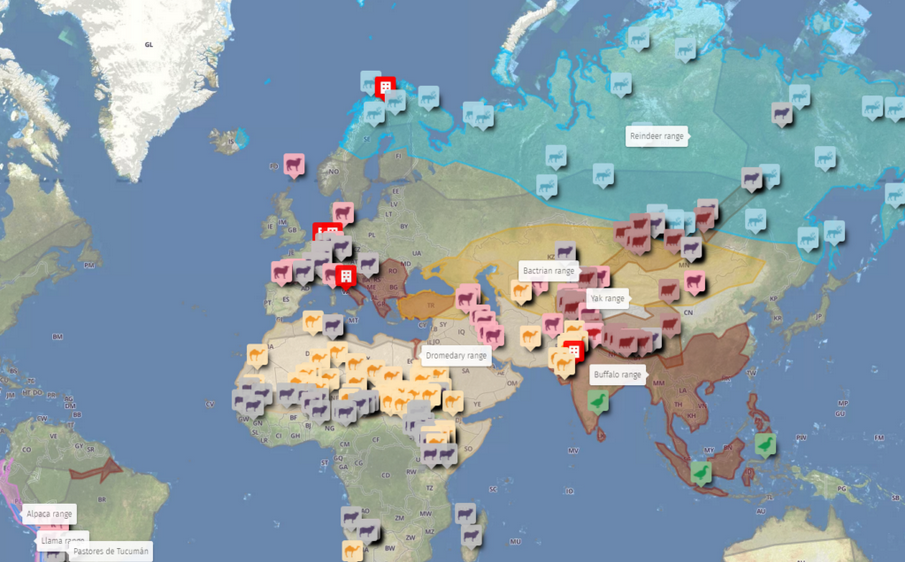Mapping for Pastoralists, Online Seminar on 25 May, 14:00 CEST

At this event we will present our World Map of Pastoralists project.
We want to show the extent of nature-positive livestock production throughout the world. Pastoralism is a big part of this.
Pastoralists make irreplaceable contributions to food security, the environment and climate protection worldwide. We are developing a map to show how many and varied their groups are and where they can be found. We want to visualize the importance of pastoralists for the whole Earth.
The map is not complete. It is an ongoing project that should be constantly added to and corrected. In this webinar we will also explain how you can take part and how to contribute information on pastoral communities.
Please register here
GASL Webinar, 17 February, 17:00 CET: Assessing resilience in the livestock sector – of what, to what and for whom?
The Global Agenda for sustainable Livestock (GASL) announces a webinar on Assessing resilience in the livestock sector.
Based on the importance of addressing resilience in the livestock sector, especially during challenging times, the Action Network Closing the Efficiency Gap organizes
an important discussion within the GASL community to identify the main parameters and a common approach to the topic of resilience in livestock, with a special focus on ruminants.
For LPP Ilse Köhler-Rollefson will contribute a presentation on “Resilience in agropastoral systems”.
For more information and registration click here
Projecting Pastoralism as a productive and ecological livestock system for the future II
Download Information (.docx)
The overall goal of this follow-up project that is supported by Misereor is to institutionalize mechanisms and policies that give greater weight to pastoralism in the agro-ecological transformation of the global food sector.
Through the project LPP will support advocacy and capacity building of pastoralist communities with respect to assessments of their numerical, economic and ecological importance.
LPP will provide inputs to the policy debate around the ‘detrimental effects’ of livestock through blogs, responses to misleading information and articles.
The project shall mainstream the concept of pastoralism /mobile livestock keeping among various movements/platforms, including in Europe/Germany.
One of the project activities is the development of a World map of Pastoralists:

With the map we want to show the extent of nature-positive livestock production throughout the world. Pastoralism is a big part of this.
The map is not yet complete. It is an ongoing project that should be constantly added to and corrected.
The Pastoralist Map is a project of:


- Go to the previous page
- 1
- …
- 6
- 7
- 8
- 9
- 10
- 11
- 12
- …
- 86
- Go to the next page
